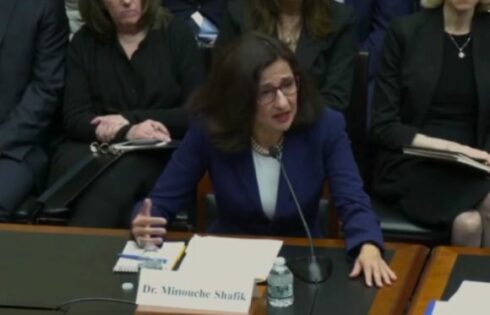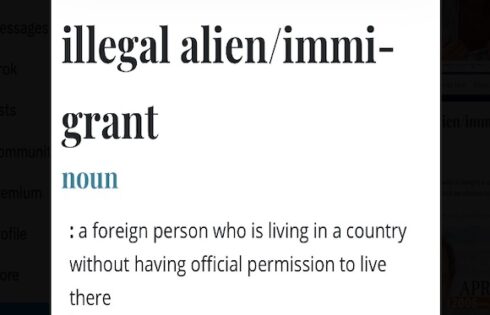 The Tyler Clementi Higher Education Anti-Harassment Act will be re-introduced into Congress this session — yet while the bill aims to protect students, some groups fear the bill violates First Amendment rights, and gives administrators too much power.
The Tyler Clementi Higher Education Anti-Harassment Act will be re-introduced into Congress this session — yet while the bill aims to protect students, some groups fear the bill violates First Amendment rights, and gives administrators too much power.
Originally introduced by Sen. Frank Lautenberg and Rep. Rush Holt, both from Clementi’s home state of New Jersey, in November, the bill never made it to the floor. Both have pledged to re-introduce the bill in the 112th session.
If passed, the act would require the “disclosure of campus security and harassment policy and campus crime statistics” from all institutions of higher education that receive federal aid. The hope is colleges will bolster and enforce harassment codes on campus.
Civil liberties groups, however, are concerned that the act empowers a system of administrators that they feel are already too powerful.
“Rather than taking [a harassment claim] to court, the issue will get handled by these campus courts, which are conducted in secrecy, without due process, without public oversight, by administrators with varying experience with the law,” said Mike Hiestand, legal counsel for the Student Press Law Center. “It’s basically a free-for-all.”
The critical difference between this new bill and the laws already on the books, according to Hiestand, is that it redefines what constitutes “harassment.”
“The bill’s new definition is very broad,” he said. “It’s wishy-washy, and any time that a legal definition is not tightly worded, it opens up the potential for abuse.”
The Tyler Clementi Higher Education Anti-Harassment Act, defines harassment as “conduct that… is sufficiently severe, persistent, or pervasive so as to limit a student’s ability to participate in or benefit from a program or activity at an institution of higher education, or to create a hostile or abusive educational environment…[and] is based on a student’s actual or perceived race, color, national origin, sex, disability, sexual orientation, gender identity, or religion.”
The definition may seem thorough, but it leaves loopholes open, according to Will Creeley, Director of Legal and Public Advocacy for FIRE (Foundation for Individual Rights in Education).
“The snag here is that there is no language in the new legislation that requires the material to be ‘objectively offensive,’ there is no ‘reasonable person’ proviso,” Creeley said. “In the 1999 decision Davis v. Monroe County, the Supreme Court very wisely struck a balance between protected, ‘bad speech’ and harassment. That level of precision is lacking here.”
Creeley said imprecise language like this leaves too much up to administrators.
“What is and what isn’t protected speech, whatever is ‘sufficiently offensive’ would be for the most easily offended student or administrator to decide,” Creeley said. “Administrators will seize upon the good intentions in this law, and use it as an opportunity to suppress speech they’d rather not hear.”
Creeley believes the bill is redundant to laws in place, like Title IX, that address harassment. Hiestand said those existing laws should be the focus, rather than new legislation on harassment.
“Now, the current federal laws don’t address harassment based on a person’s sexual orientation [or gender identity] like this act does,” Hiestand said. “But if the goal is to remedy that, they need to go back and amend the current laws.”
The bill is named in honor of the 18-year-old Rutgers freshman who committed suicide in October after his roommate and another classmate allegedly streamed webcam footage and posted Twitter updates regarding Clementi’s sexual encounters with a man.
Dave Reynolds, senior public policy and research manager at The Trevor Project, a crisis prevention group for LGBT youth, believes this law would correct existing deficiencies in harassment law.
“This law is essentially an amendment to the Higher Education Act of 1965,” Reynolds said.
“While there are many schools doing a great job creating a safe learning environment for all, there are schools that are only doing a great job for some,” he said. “Many schools won’t offer protection for all their students without Federal Legislation, and, as you can imagine, those are the schools where some students would suffer the most.”
Reynolds said there are first amendment protections in the bill, which provide free speech protections for victims of harassment. He pointed to the last section of the bill. The language reads: “Nothing in this Act shall be construed to invalidate or limit rights, remedies, procedures, or legal standards available to victims of discrimination under any other Federal law.”
According to Creeley and Hiestand, while well-intentioned, those limited protections could have unintended consequences.
“In the current rush to prevent bullying, we’ll continue to see students punished for protected speech,” Creeley said. “The will to censor inconvenient or offensive material is so strong, and [our] case file is so big, there’s reason to think that any inch given to college courts will be turned into a mile.”
Kate Havard is a junior at St. John’s College and a member of the Student Free Press Association.
Like The College Fix on Facebook / Follow us on Twitter



Please join the conversation about our stories on Facebook, Twitter, Instagram, Reddit, MeWe, Rumble, Gab, Minds and Gettr.